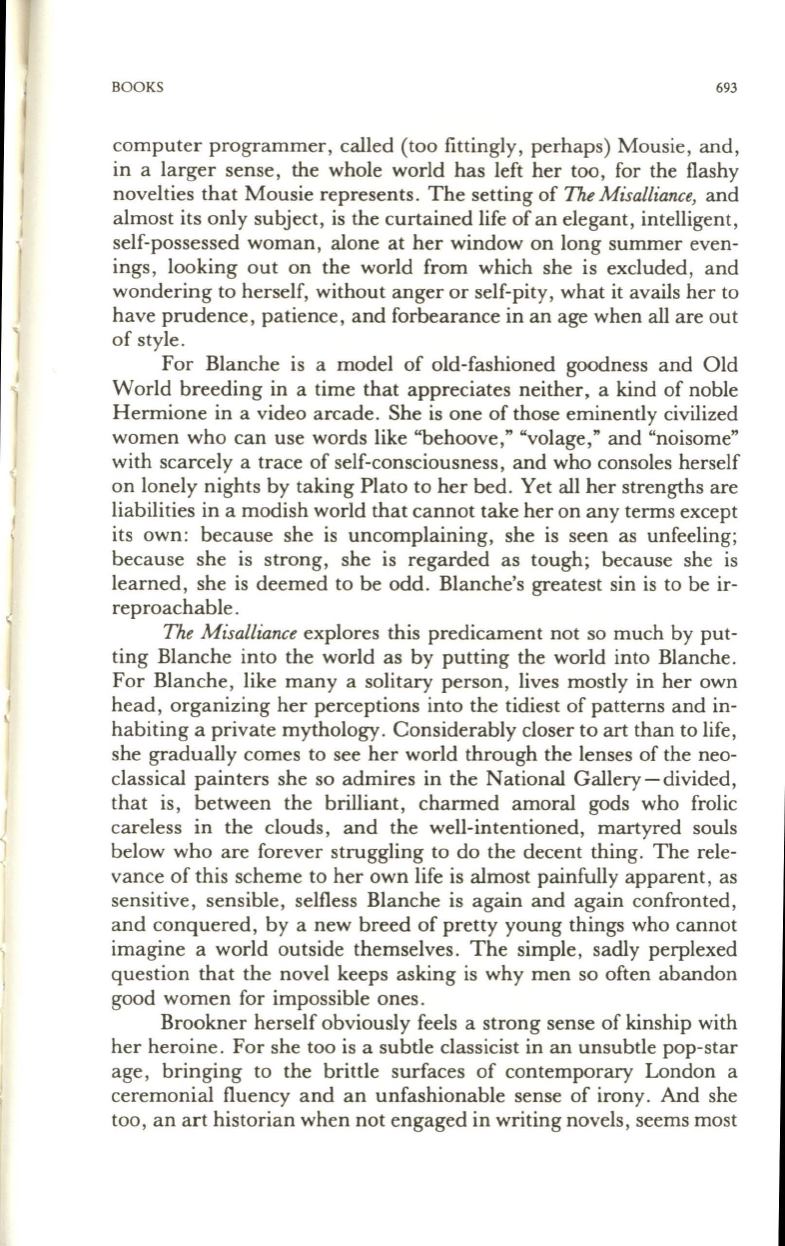
BOOKS
693
computer programmer, called (too fittingly, perhaps) Mousie, and,
in a larger sense, the whole world has left her too, for the flashy
novelties that Mousie represents. The setting of
The Misalliance,
and
almost its only subject, is the curtained life of an elegant, intelligent,
self-possessed woman, alone at her window on long summer even–
ings, looking out on the world from which she is excluded, and
wondering to herself, without anger or self-pity, what it avails her to
have prudence, patience, and forbearance in an age when all are out
of style .
For Blanche is a model of old-fashioned goodness and Old
World breeding in a time that appreciates neither, a kind of noble
Hermione in a video arcade. She is one of those eminently civilized
women who can use words like "behoove," "volage," and "noisome"
with scarcely a trace of self-consciousness, and who consoles herself
on lonely nights by taking Plato to her bed . Yet all her strengths are
liabilities in a modish world that cannot take her on any terms except
its own: because she is uncomplaining, she is seen as unfeeling;
because she is strong, she is regarded as tough; because she is
learned, she is deemed to be odd. Blanche's greatest sin is to be ir–
reproachable .
The Misalliance
explores this predicament not so much by put–
ting Blanche into the world as by putting the world into Blanche.
For Blanche, like many a solitary person, lives mostly in her own
head, organizing her perceptions into the tidiest of patterns and in–
habiting a private mythology. Considerably closer to art than to life,
she gradually comes to see her world through the lenses of the neo–
classical painters she so admires in the National Gallery-divided,
that is, between the brilliant, charmed amoral gods who frolic
careless in the clouds, and the well-intentioned, martyred souls
below who are forever struggling to do the decent thing. The rele–
vance of this scheme to her own life is almost painfully apparent, as
sensitive, sensible, selfless Blanche is again and again confronted,
and conquered, by a new breed of pretty young things who cannot
imagine a world outside themselves . The simple, sadly perplexed
question that the novel keeps asking is why men so often abandon
good women for impossible ones .
Brookner herself obviously feels a strong sense of kinship with
her heroine. For she too is a subtle classicist in an unsubtle pop-star
age, bringing to the brittle surfaces of contemporary London a
ceremonial fluency and an unfashionable sense of irony. And she
too, an art historian when not engaged in writing novels, seems most


